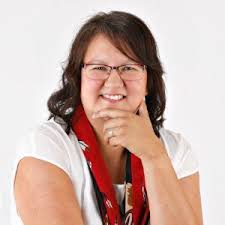|
Getting your Trinity Audio player ready...
|
A holistic view of the world is something Melanie Goodchild lives and breathes, every moment of her life.
And the learning for Canada’s charitable sector is that they need to adopt the largest possible view of what they do, who they serve and issues they face within society.
“You can’t use simple or even complicated frameworks to address complexity,” Melanie explains, as a key Indigenous leader and presenter at the Manulife Board Governance BootCamp last week in Cambridge.
“I would argue that indigenous people are natural systems thinkers. It’s encoded in our languages.”
“Our elders never talk about nature and the environment,” says the Research Fellow and Associate at the Waterloo Institute for Social Innovation and Resilience (WISIR).
“They talk about everything. We’re not separated from it and that’s a huge departure from social and ecological sustainability.”
Systems thinking theory is largely rooted in science, but the influence of her indigenous background is central to her holistic view of issues and organizations.
“It’s the ability to address the whole, to examine relationships between different parts. That’s reflected in our concept of all of our relatives. We’re all related.”
 A PhD candidate in the Faculty of Environment at University of Waterloo, Melanie is bringing insights to a new collaboration with NASA that aims to build a bridge between Indigenous knowledge systems and geospatial data.
A PhD candidate in the Faculty of Environment at University of Waterloo, Melanie is bringing insights to a new collaboration with NASA that aims to build a bridge between Indigenous knowledge systems and geospatial data.
In her work to support NASA, she is collaborating with a team of interdisciplinary tribal and non-tribal members to determine how First Nations could use NASA’s data to reduce their vulnerability to rapid climate change – which affects traditional food sources and safe travel routes.
Traditionally, Melanie takes groups on the land, so they fully experience indigenous respect for our world and cultural differences. But in a conference hotel room, she effectively highlights differing views toward issues and the world.
A member of the Anishinaabe, moose clan, a member of the Biigtigong Nishnaabeg in northwestern Ontario, she brings numerous examples of how a broader, systems thinking approach can influence how to approach an issue.
An iceberg model exercise with participants at the BootCamp illustrates the depth behind a single event, and how longstanding, deep-seated assumptions influence what can happen.
“We have a bit of a crisis of imagination as humans,” she explains. “How can we imagine a post-fossil-fuel world, how do we imaging a low-carbon footprint when it’s so complex? We all hear about climate change but what do we do, individually, collectively?”
Systems mapping with 3D and 4D models help analyse different factors behind an issue. “You go through a learning journey to experience parts of your system through the perspective of different stakeholders.”
Regardless of the setting, “You need to ask yourself, who are all of our stakeholders?” Then consider the view point and factors influencing each perspective. Go back to the land and use multiple intelligences.”
“Indigenous people around the world are experiencing climate change at a disproportionate level compared to (people in) more urban settings,” Goodchild told Grand Magazine for a cover feature that appeared in late 2018. (See “NASA’s Indigenous Voice”)
“We talk about glacial melt; (Indigenous people) are seeing it. We talk about permafrost thaw, they’re experiencing it. They are seeing changes in migration patterns and food availability. How they’re experiencing their local ecosystems is changing.”
She grew up in northwestern Ontario near Lake Superior and spent her time between two First Nation communities, which her mother and father called home.
Melanie was one of 35 women chosen from around the world to take part in the International Women’s Forum (IWF) Leadership Foundation’s 2015-2016 Fellows Program, which includes Harvard Executive Education Training at Harvard Business School in Cambridge, MA, and the Women Leading Global Change program at INSEAD in Fontainebleau, France.
She has a Master of Arts Degree in Sociology and is currently completing her PhD in Social and Ecological Sustainability at University of Waterloo.
Melanie is currently a member of the co-design and Faculty team for the Getting to Maybe: Systems Leadership Journey residency program at the Banff Centre for Arts and Creativity. She is also part of the team designing a new systems thinking Fellows Program launching in 2020 at the Banff Centre.
Melanie advises many social innovation initiatives across Turtle Island (North America) including programs by the the J.W. McConnell Family Foundation, the Jays Care Foundation, the Academy for Systems Change, the Engineering Change Lab, Reconciliation Canada, Grand Challenges Canada, the Centre for First Nations Governance, Skookum Lab and Ashoka Canada.
Among her other skills, she is also a member of the IBA – the Iron Butt Association, riding her Harley-Davidson 1000 miles in 24 hours to earn her the badge of “one of the world’s toughest riders”.
“If your knowledge, like mine, comes from the land, knowledge of the animals, plants and water, and we have a loss of biodiversity, we have a loss of knowledge. I can’t learn if the land is gone or destroyed.”
Resource:
“Structures of Indifference: An Indigenous Life and Death in a Canada City”, is a helpful resource for working with the iceberg model exercise.
Other links to Melanie’s work:
https://uwaterloo.ca/global-impact/bridge-between-indigenous-knowledge-and-nasa
https://www.iwforum.org/in_the_lead_melanie_goodchild

